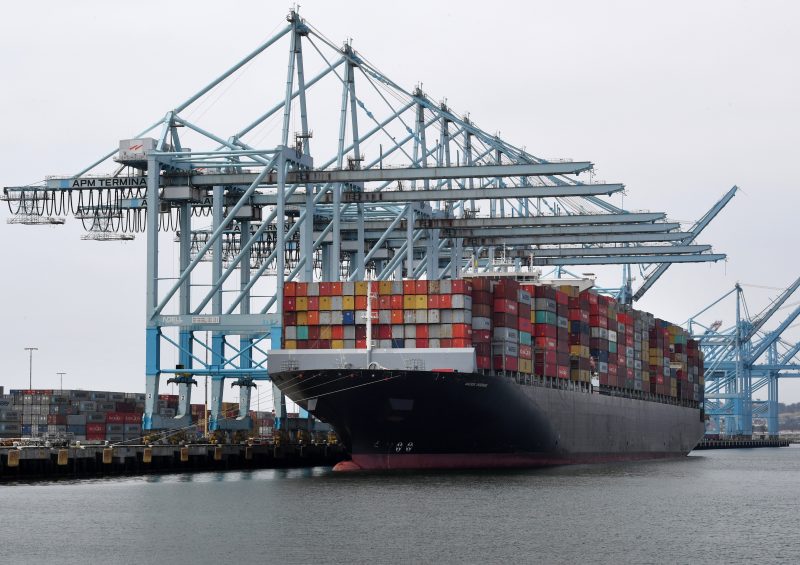OECD cuts global growth forecast as US-China tensions rise
Trade tensions threaten to slow global growth (Mark RALSTON)
Paris (AFP) – The OECD on Tuesday cut its forecast for the world economy, urging governments to resolve their trade disputes as the latest flare-up in the US-China trade war threatens to crimp global growth.
“Governments must act urgently to reinvigorate growth that benefits all,” the Organisation for Economic Co-operation and Development said as it pared back its forecast for global growth to 3.2 percent this year from 3.3 percent earlier.
“Resolve trade disputes through increased international cooperation while fixing the international rules-based system,” said the OECD, a Paris-based forum that advises the world’s advanced economy.
“Invest in infrastructure, digital transformation and skills to meet tomorrow’s challenges. In the euro area, combine structural with fiscal policies to stimulate activity.”
The OECD’s updated forecasts did not take directly into account the latest flare-up in the long-running trade war between Washington and Beijing, “insofar that there is still a great deal of uncertainty about the length of time (tariffs) will remain in place and the future evolution of the trade relationship between the two countries,” an OECD source told AFP.
Nevertheless, the projections did “incorporate” the increased uncertainty generated by the trade tensions, the source said.
As both Washington and Beijing slap trade tariffs on more and more of each other’s goods, President Donald Trump has barred US companies from engaging in telecommunications trade with foreign companies said to threaten American national security.
US internet giant Google, whose Android mobile operating system powers most of the world’s smartphones, then announced that it was beginning to cut ties with China’s Huawei, which Washington considers a national security threat.
OECD secretary general Angel Gurria told a news conference it was imperative that Washington and Beijing bury their differences.
“There is an urgent need that we sit around a multilateral table and that we create the conditions that will allow trade to continue to underpin global growth and global well-being,” he said.
“We have a lot of work to do, but if we do it together we will have a much better chance to succeed.”
The organisation’s chief economist Laurence Boone said the “worst scenario possible” was that trade tensions would continue and snowball.
“A climate of uncertainty (was) detrimental to investment and for confidence” and could erode purchasing power, she argued.
While the OECD pared back its global growth forecast for the current year, it predicted a pick-up in activity to 3.4 percent in 2020.
It notched up its forecast for US growth this year by 0.2 percentage point to 2.8 percent, but predicted a slowdown to 2.3 percent next year.
Chinese growth was projected to slow to 6.2 percent this year and 6.0 percent next year.
The outlook for euro area growth was unchanged at 1.2 percent this year.
Disclaimer: Validity of the above story is for 7 Days from original date of publishing. Source: AFP.


